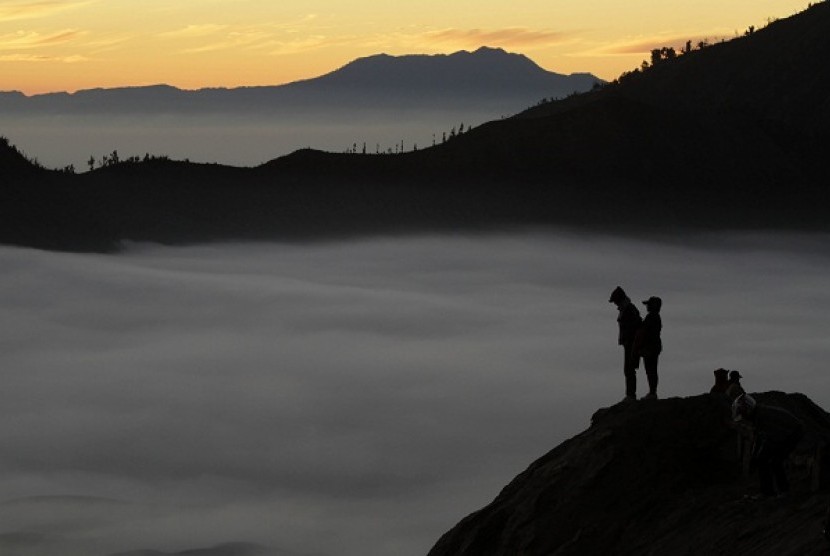REPUBLIKA.CO.ID, MALANG -- East Java's tourism society and industry on Monday staged a protest in front of the Mount Bromo Tengger Semeru National Park Agency (TNBTS), over the threefold increase of Mount Bromo's entrance fees.
"The increase in the entrance fees for domestic and international tourists may have a negative impact on the tourism industry and the local residents of Tengger, as it could reduce the number of tourists visiting the site," the spokesperson of the protesters, Indra, said here on Monday.
The Government Regulation (PP) no.12/2014 stated the entrance fee for domestic tourists was increased from Rp10,000 to Rp37,500 (around three US dollar) during weekdays and Rp67,000 in the weekends.
For international tourists the fee was increased from Rp72,500 (around six US Dollar) to Rp267,000 (22 US dollar) during weekdays and Rp640,000 (53 US Dollar) in the weekends.
The new tariff will become effective on May 1, 2014.
The protesters said the entrance fee increase was a form of commercialization of nature. Only people who are rich will be allowed to enjoy the beauty of nature in the Bromo Tengger National Park.
"The government regulation has deprived people of the right to enjoy the beauty of Mount Bromo and Semeru," Indra said.
Meanwhile, the head of the Jeep Transportation Association of Bromo Rudi Prabowo also said he opposed the hike of the entrance fees.
"The increase in the entrance ticket fee is not rational," Prabowo said.
The Government Regulation No.12/2014 on the fees of natural tourism destinations was a result of the revision of the Government Regulation no.59/1998 on non-tax state revenue (PNPB) from the forestry sector.



